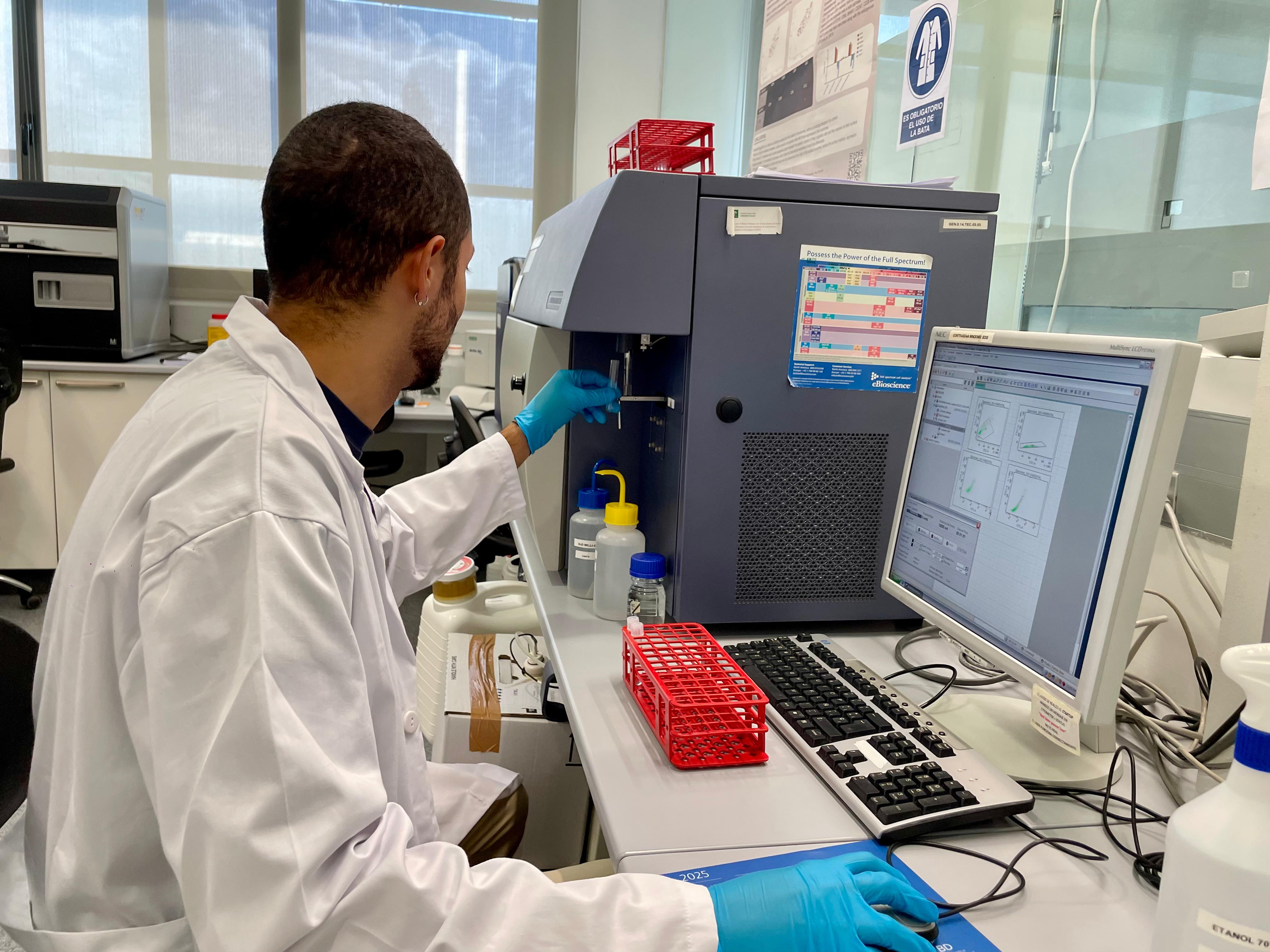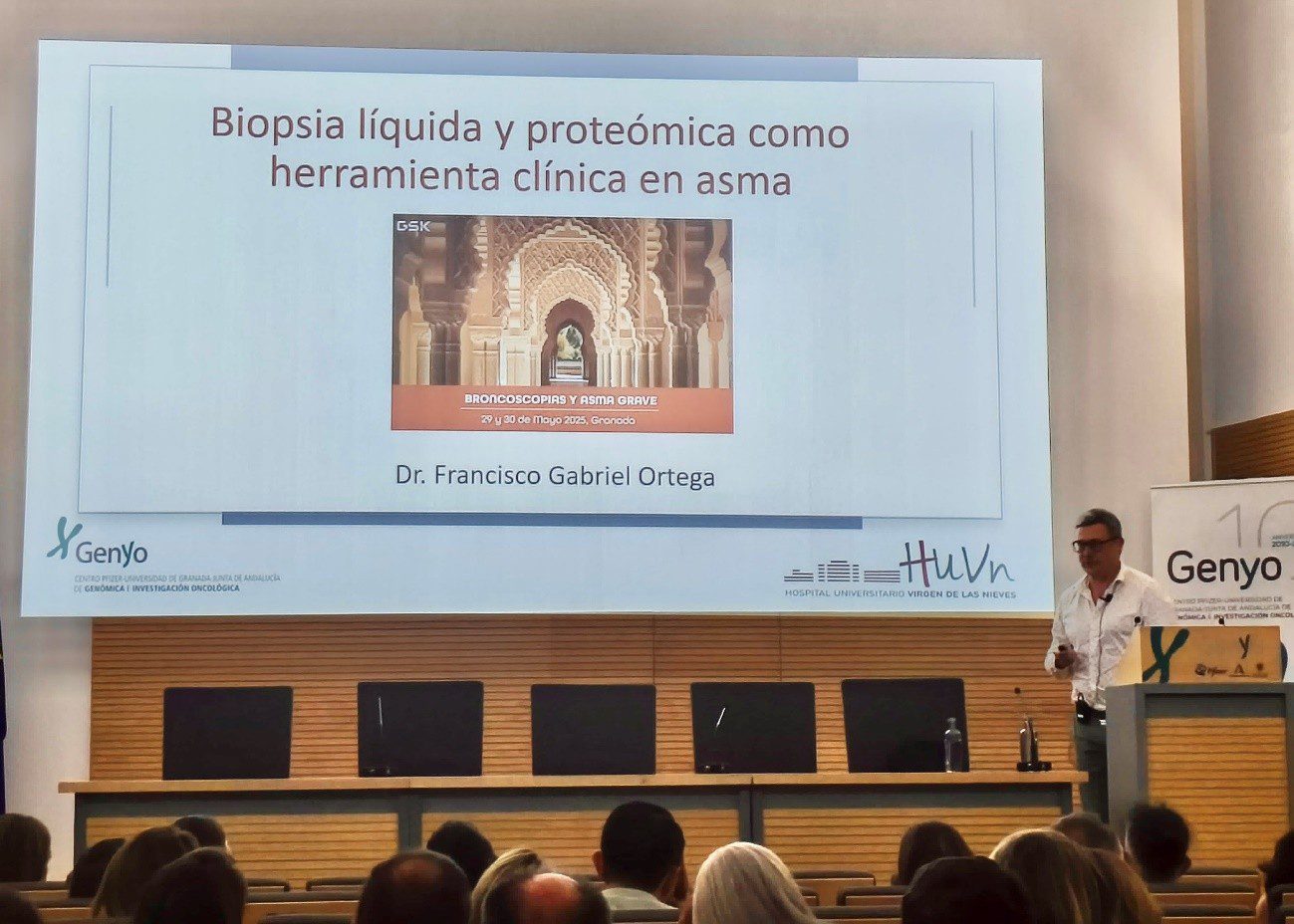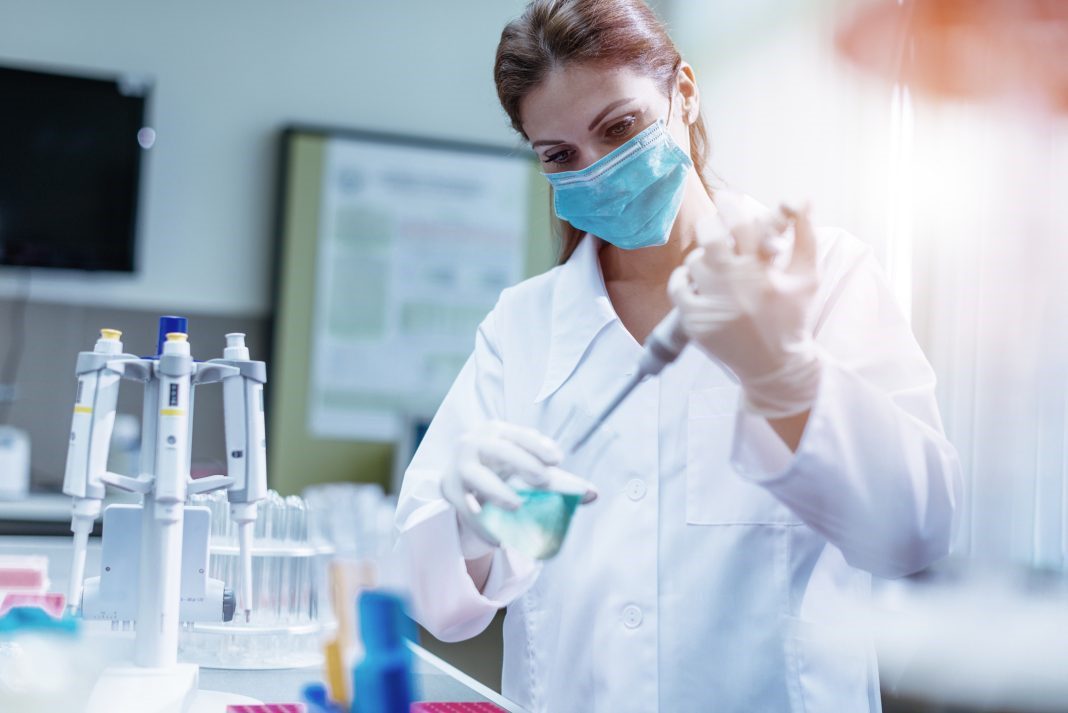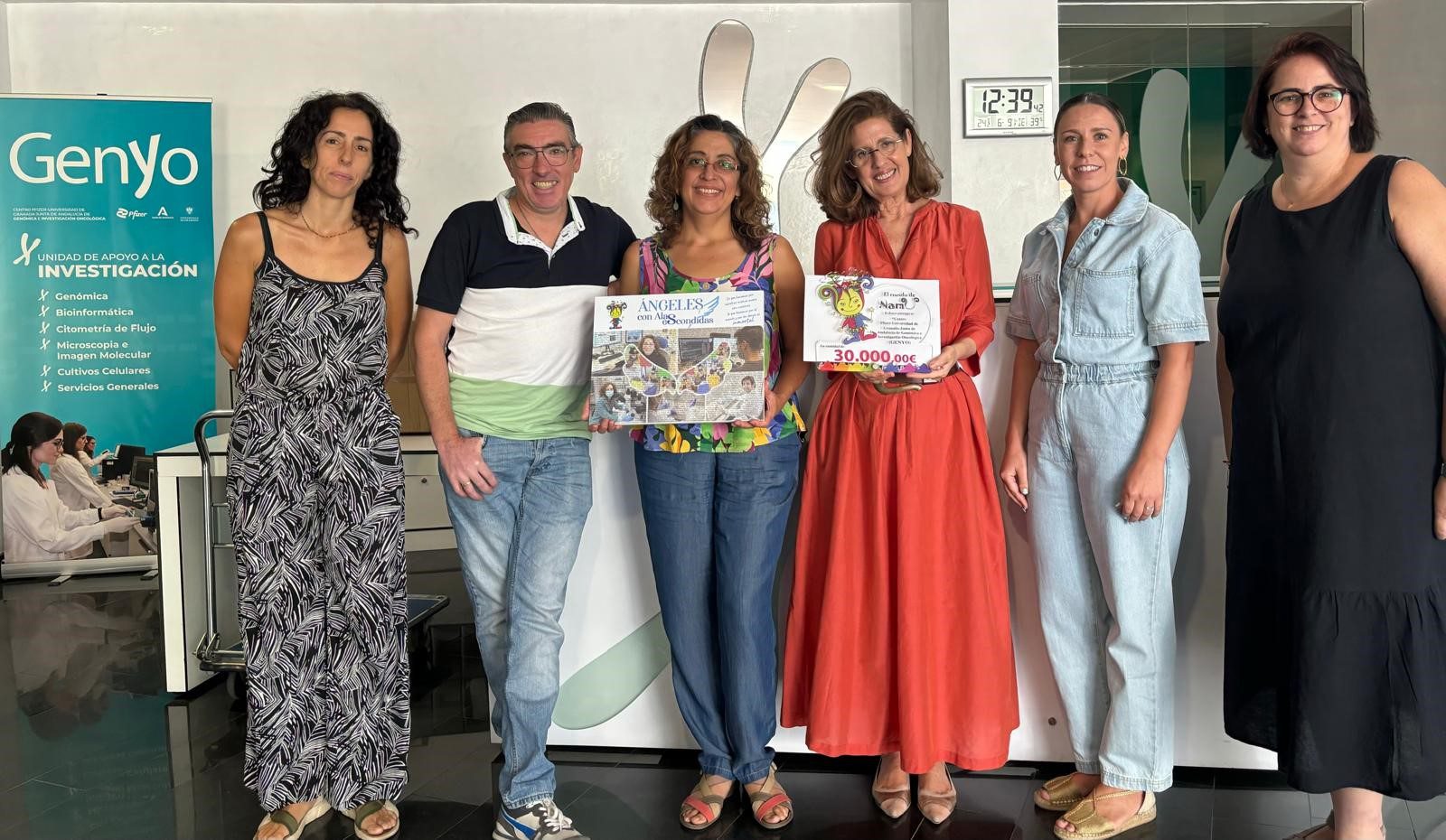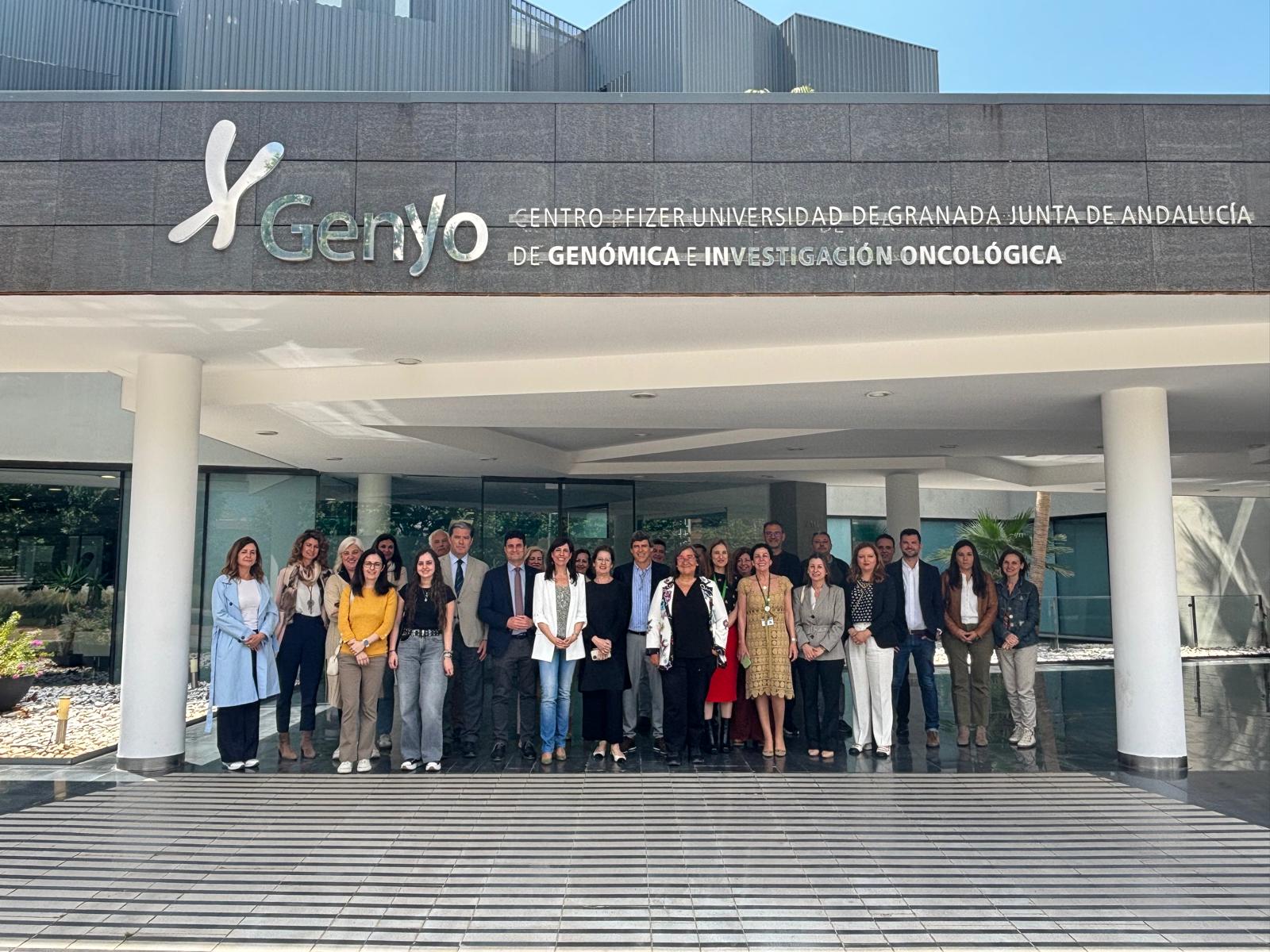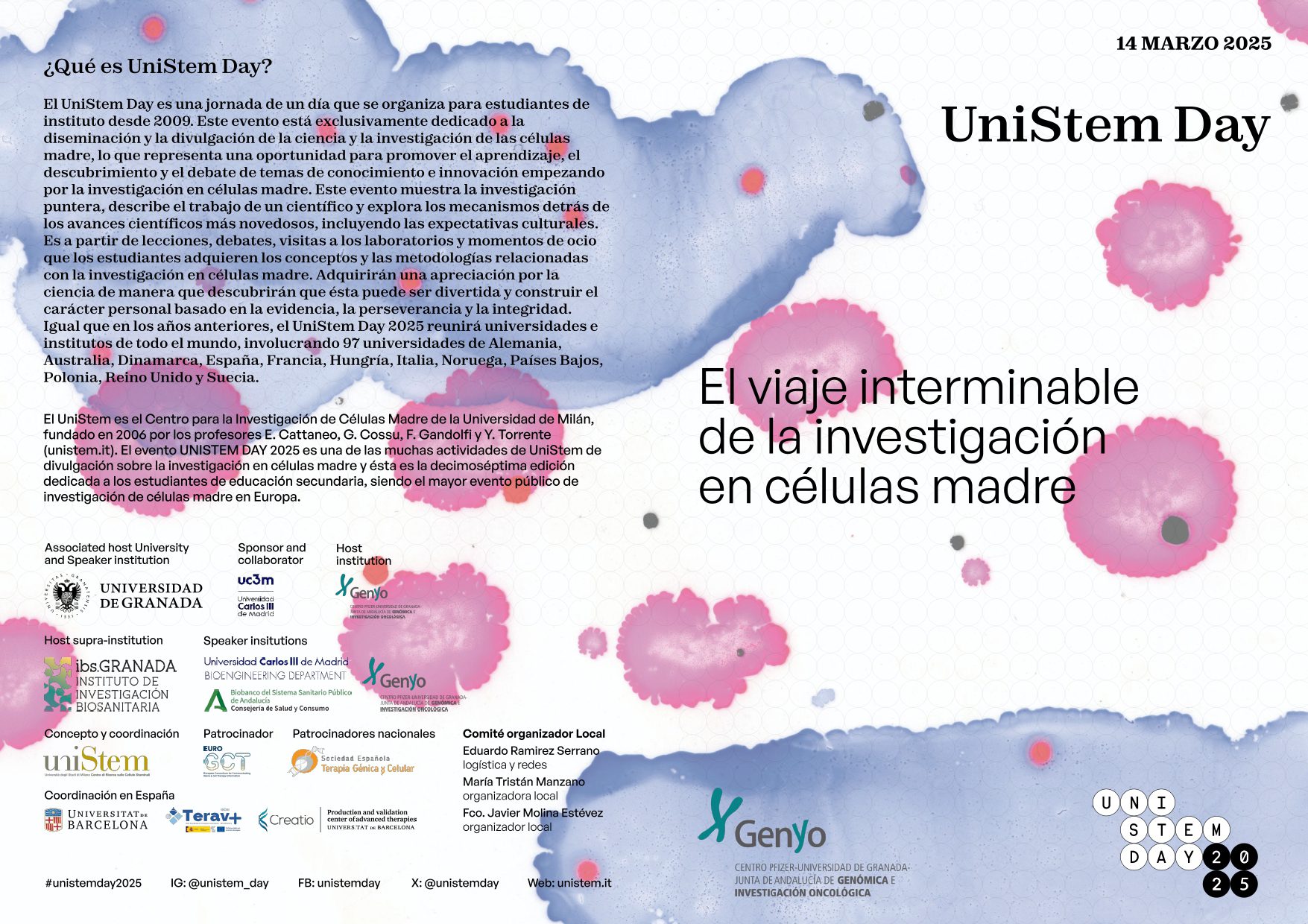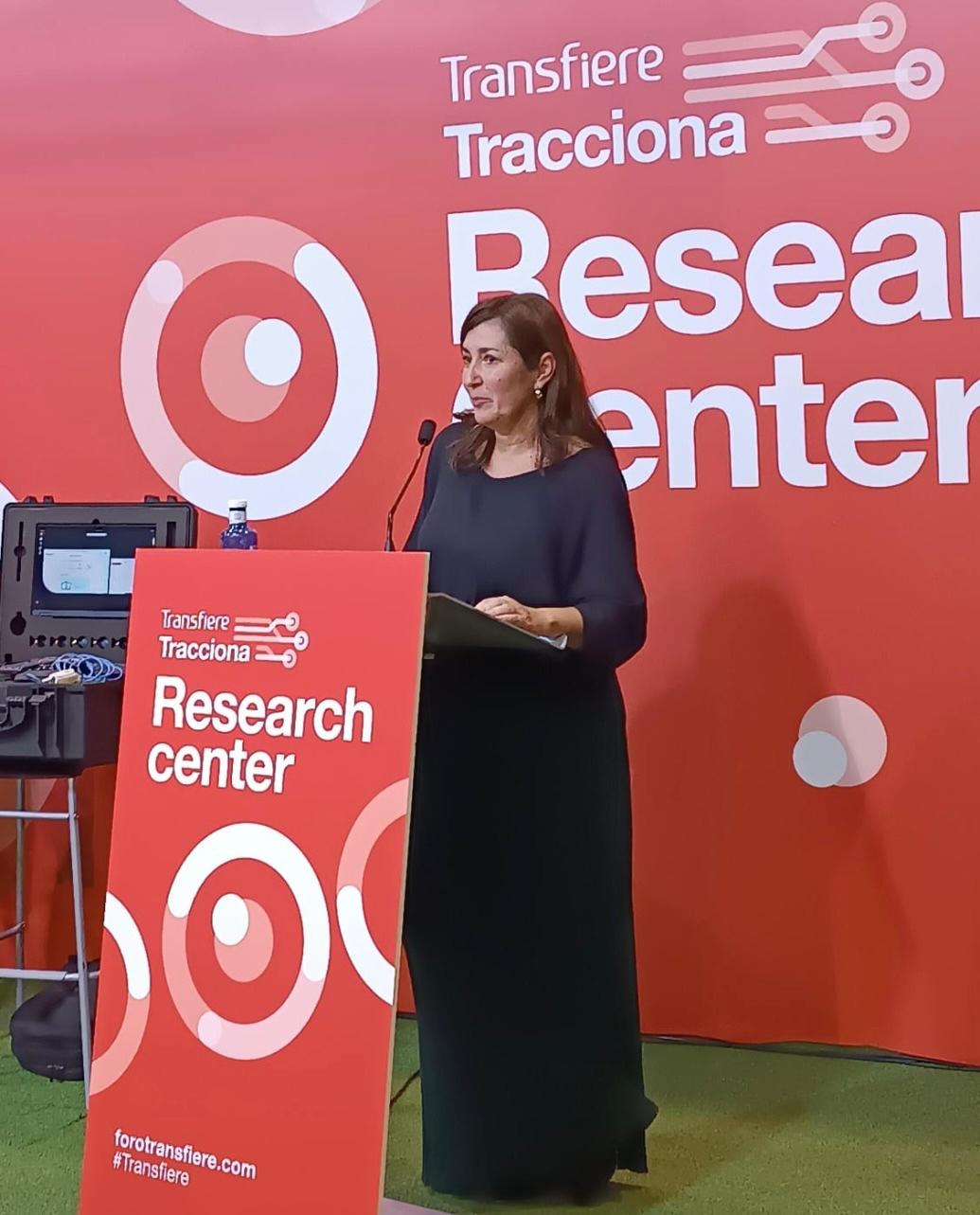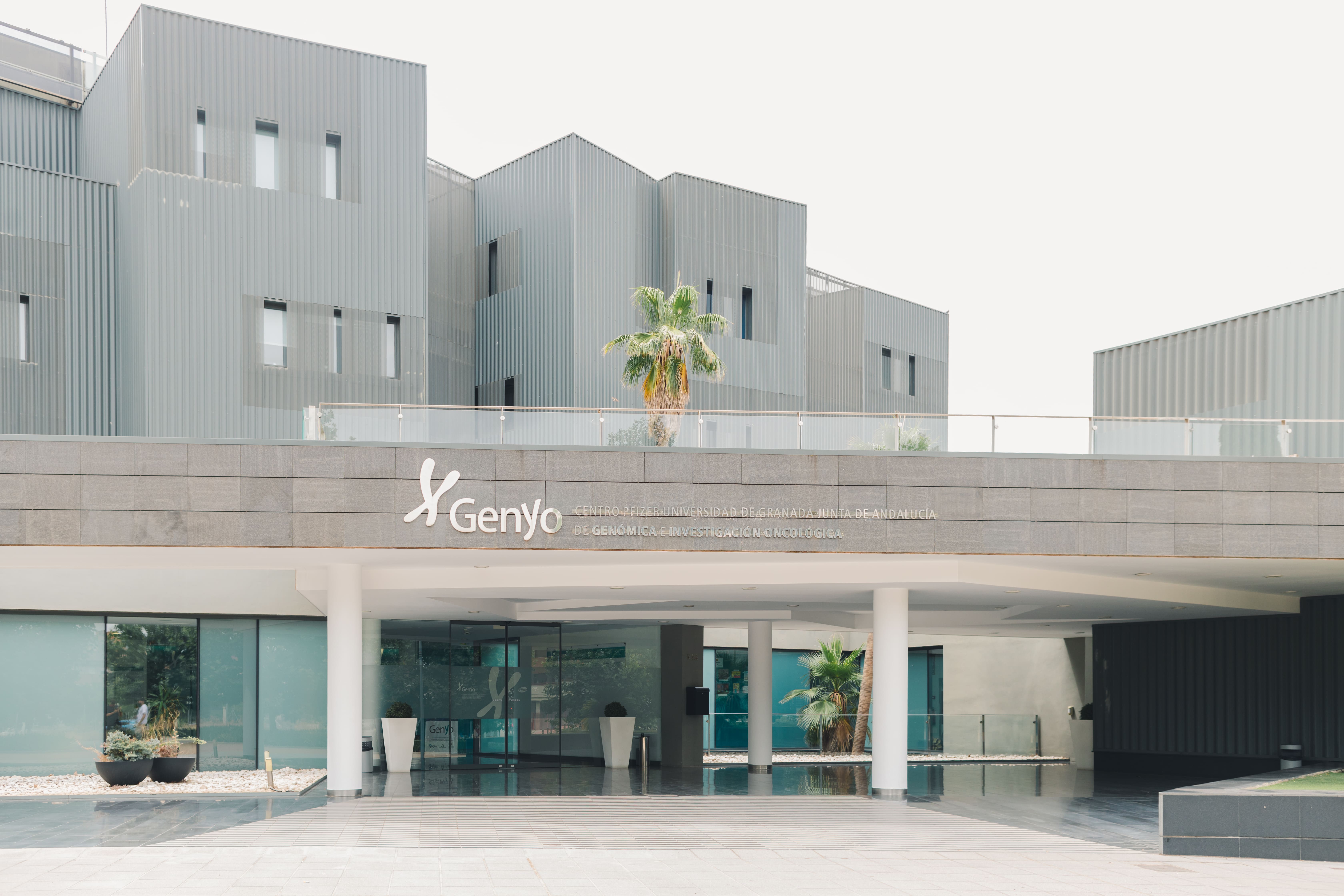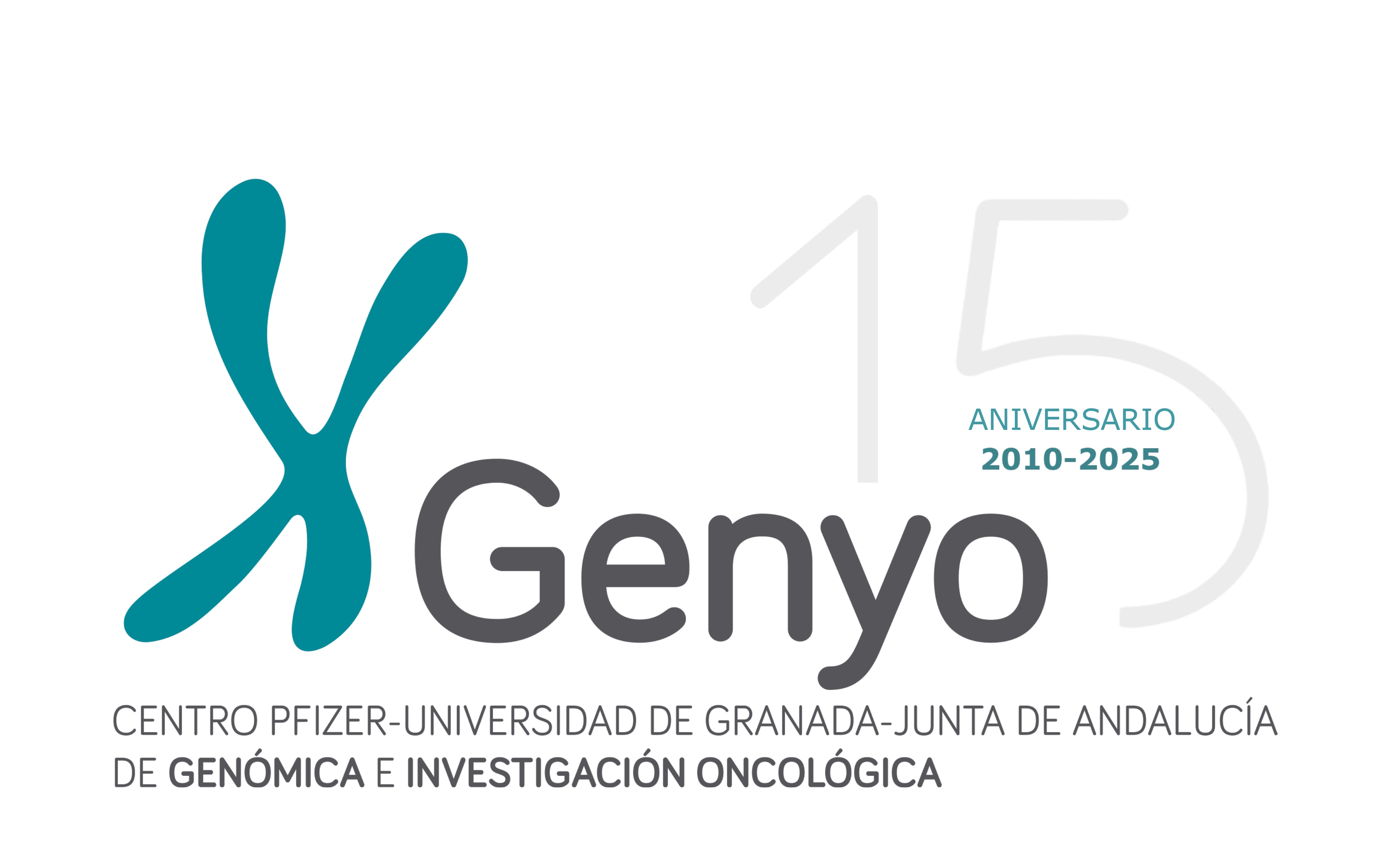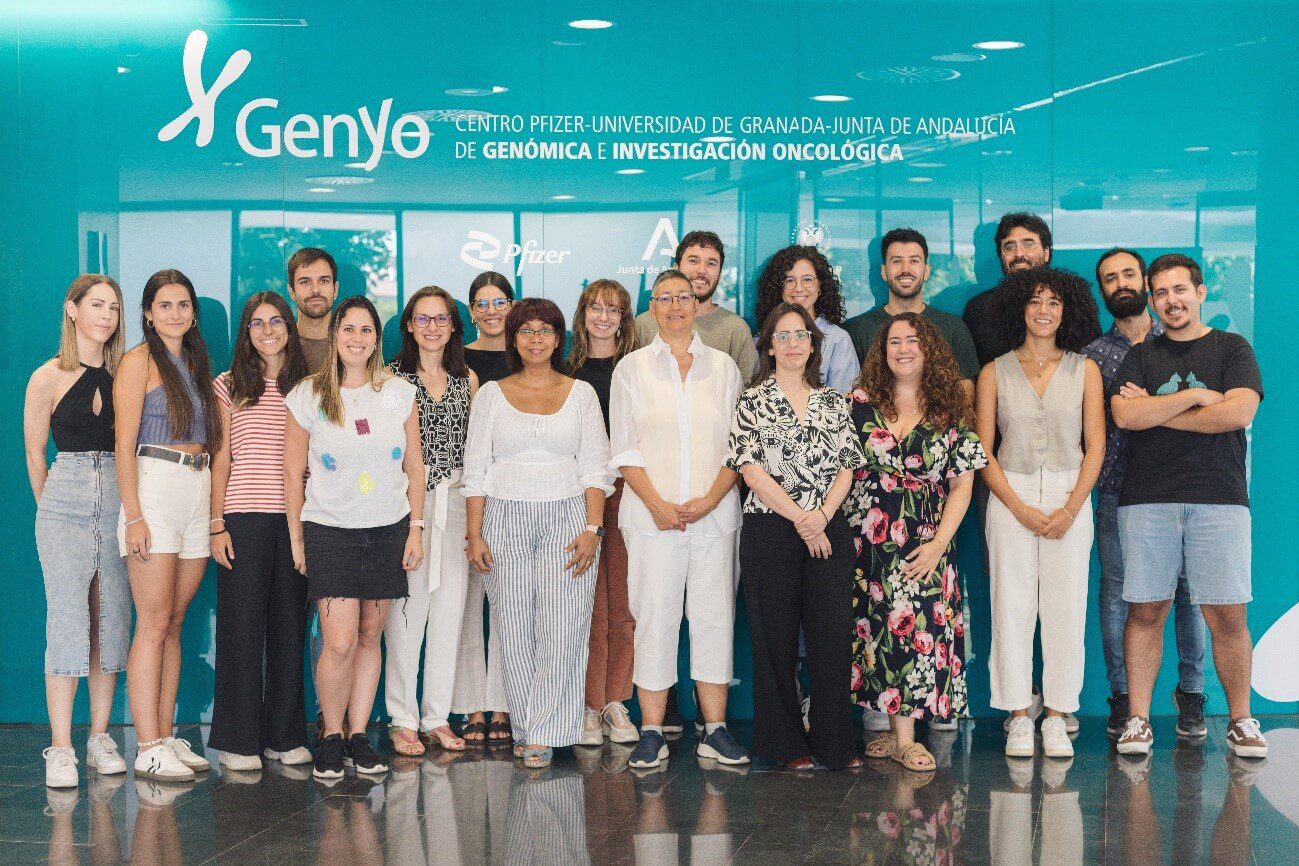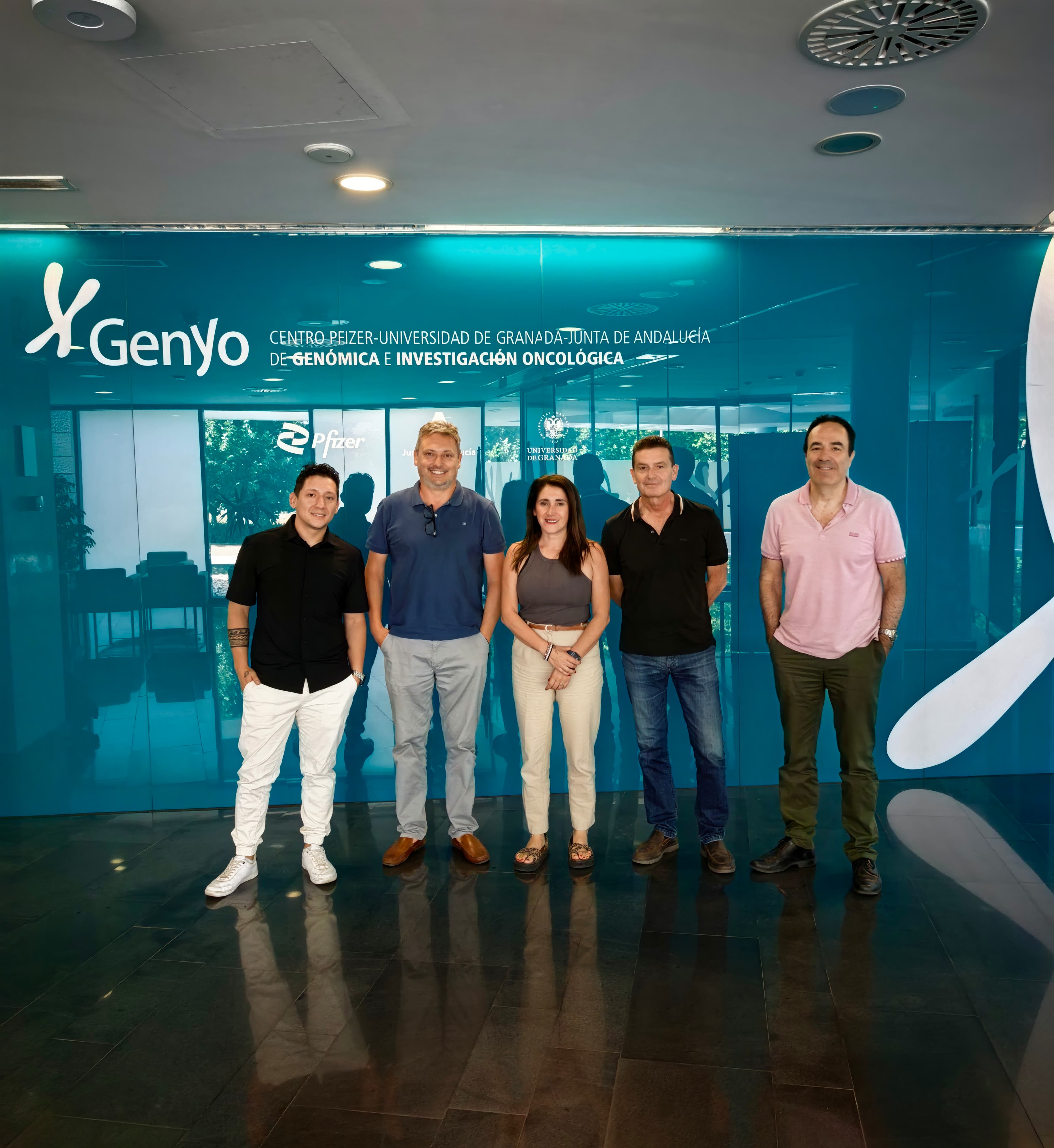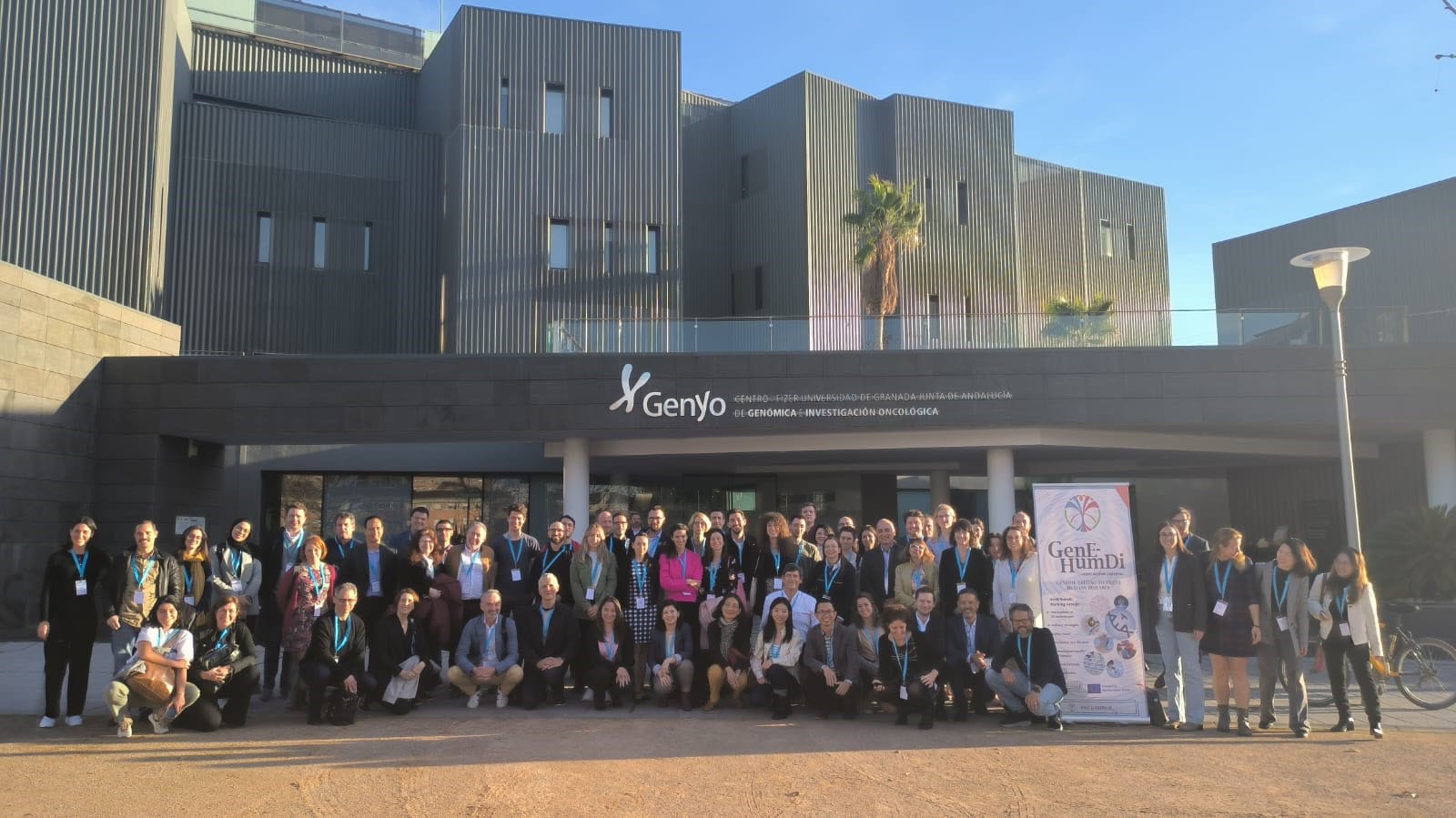
There are no projects in the garbage can.
The study, published in the Journal of Nanobiotechnology, focuses on miR-122, an indicator of liver health, and identifies very subtle variants of the microRNA that may point to different pathologies.
The NanoChemBio research group at the Pfizer-Universidad de Granada-Junta de Andalucía de Genómica e Investigación Oncológica (GENyO) Center and the Department of Pharmaceutical and Organic Chemistry at the University of Granada’s School of Pharmacy, led by Dr. Rosario M. Sánchez Martín, together with the company DestiNA Genómica, has developed an innovative dual nanosystem that allows the biomarker microRNA-122 (miR-122) to be detected with great precision, even identifying single-base mutations in its sequence.
MicroRNAs are small RNA molecules that, instead of producing proteins, regulate gene expression and are involved in various biological functions. In particular, miR-122 is a liver-specific microRNA that plays a crucial role in liver development and metabolism. The levels of this microRNA serve as a biomarker for various liver disorders, including hepatocellular carcinoma and hepatitis B infection. Therefore, accurate detection of miR-122 is essential for the diagnosis and prognosis of liver diseases.
This group of scientists from ibs.GRANADA, with a laboratory at GENYO and in collaboration with the R&D team at DestiNA Genomica at PTS Granada, has developed a nanosystem that combines two highly selective chemical reactions (known as click chemistry and dynamic chemistry) and uses a PNA probe (a more stable DNA analog). The system also incorporates two nanoparticles that react in a bioorthogonal manner (only with each other, without interfering with other molecules), enabling the detection of miR-122 in human serum and tumor cell samples. Furthermore, it distinguishes single “letter” (nucleotide) changes in the miR-122 sequence (isomiRs), which is key to recognizing variants associated with different diseases that cannot be easily detected by classical techniques.
In the tests carried out, the nanosystem identified miR-122 in several tumor cell lines with a high degree of concordance with reference methods, such as TaqMan assays. In addition, it detected four variants that differ by a single nucleotide at a specific position in the sequence. All this is achieved through bioorthogonal reactions and without the use of enzymes, which simplifies the procedure and reduces potential sources of error.
The study’s conclusions highlight the great potential of this nanosystem as an innovative tool for detecting microRNAs. As it does not require enzymes, the methodology facilitates its future implementation in clinical and research settings, opening up opportunities in personalized medicine and biomarker analysis. This advance represents an important step toward more accessible, specific, and nanotechnology-based molecular diagnostics.
This work has been funded by Ministerio de Ciencia e Innovación and Agencia Estatal de Investigación, with funds from Plan de Recuperación, Transformación y Resiliencia – Next Generation EU, and by the European Union’s Horizon 2020 program through the Marie Skłodowska-Curie actions. The NanoChemBio group is part of the NANOCARE 2.0 network.
Bibliographic reference:
Robles-Remacho, A., Martos-Jamai, I., Tabraue-Chávez, M., Aguilar-González, A., Laz-Ruiz, J.A., Cano-Cortés, M.V., López-Delgado, F.J., Guardia-Monteagudo, J.J., Pernagallo, S., Diaz-Mochon, J.J., & Sanchez-Martin, R.M. (2024). Click chemistry-based dual nanosystem for microRNA-122 detection with single-base specificity from tumour cells. Journal of Nanobiotechnology, 22, 791. https://doi.org/10.1186/s12951-024-03071-6
About the group:
The TECE18-Nanochembio group at ibs.GRANADA researches new diagnostic and treatment tools based on nanotechnology, biomaterials, and dynamic chemistry, working closely with clinical staff. Its lines of research include the development of nanosystems to improve therapies such as CAR-T and theranostic platforms (combining diagnosis and therapy) applied to cancer, with the aim of bringing more accurate and personalized solutions to healthcare practice.
More information: https://www.genyo.es/investigacion/grupos-investigacion/nanochembio/
See more news


